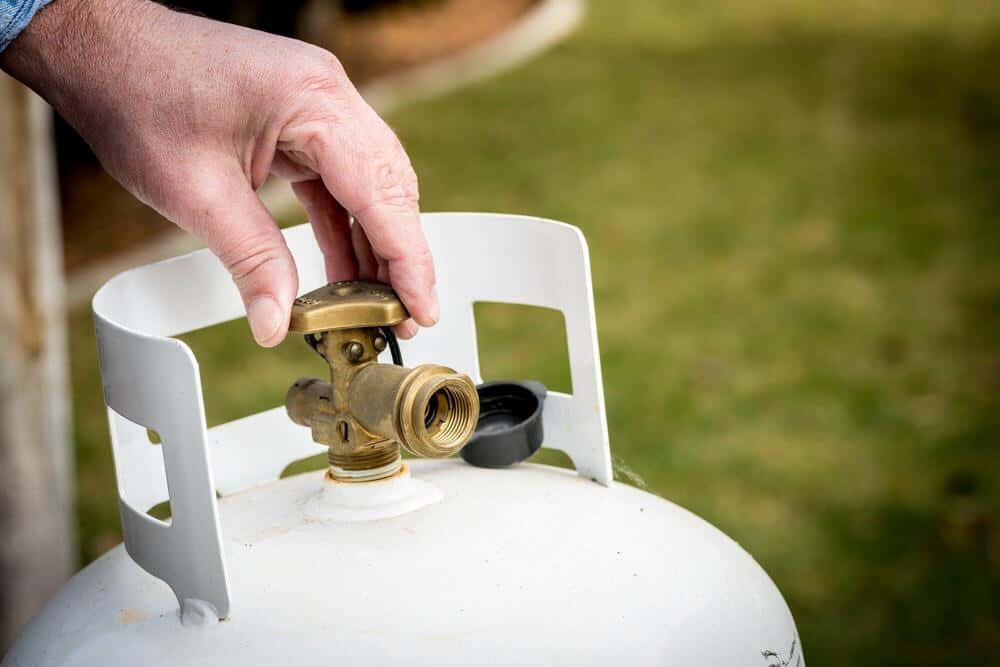One often overlooked aspect of environmental responsibility is properly disposing of camping propane tanks. Whether you’re a seasoned camper or just getting started with different types of camping, understanding how to safely and responsibly dispose of propane tanks is crucial for both safety and environmental reasons.
Understanding Propane Tanks
Camping propane tanks come in two main types: disposable and refillable. Disposable tanks, often used for portable stoves and lanterns, are designed for single use. Refillable tanks, on the other hand, can be used multiple times and are more common for larger camping setups. Both types are made of steel and contain pressurized, flammable gas, making proper disposal essential.
Safety First: Preparing Tanks for Disposal
Before disposing of any propane tank:
- Ensure it’s completely empty.
- Use the tank with your camping appliance until the flame goes out, indicating that no propane remains.
- Store empty tanks in a well-ventilated area away from heat sources until you’re ready to dispose of them.
Eco-Friendly Disposal Options
Recycling Programs
Many local recycling centers accept empty propane tanks. Some manufacturers, like Coleman, offer take-back programs like the CylinderSafe system. These programs ensure that tanks are properly recycled or refurbished for reuse.
Hazardous Waste Collection Events
Many communities host hazardous waste collection events where you can safely dispose of propane tanks and other potentially dangerous materials. Check your local government website or waste management facility for upcoming events.
Retailer Take-Back Programs
Some outdoor gear retailers and hardware stores accept used propane tanks. While some may charge a small fee, others offer exchange programs where you can trade in your empty tank for a discount on a new one.
DIY Disposal Methods (with Caution)
Some campers opt to safely puncture completely empty tanks before recycling. However, this should only be done with extreme caution and in accordance with local regulations. Alternatively, creative campers might repurpose empty tanks for non-pressurized uses, such as turning them into camp stoves or lanterns.
Legal Considerations
Be aware that local regulations regarding propane tank disposal can vary widely. Some areas have strict guidelines and penalties for improper disposal. Always check with your local waste management authority for specific rules in your area.
Alternatives to Disposable Tanks
Consider switching to refillable propane tanks for your camping needs. Not only are they more cost-effective in the long run, but they also significantly reduce waste. For those interested in a more traditional approach, pioneer camping techniques often rely on renewable fuel sources, eliminating the need for propane altogether.
Best Practices for Campers
To maximize the life of your propane tanks and minimize waste:
- Store tanks properly when not in use.
- Check for leaks regularly.
- Use appliances efficiently to conserve fuel.
For those who prefer a more luxurious outdoor experience, glamping often provides propane-powered amenities without the hassle of tank disposal.
Environmental Impact
Improper disposal of propane tanks can lead to soil and water contamination. By disposing of tanks correctly, we contribute to the overall sustainability of our camping practices. This aligns well with the principles of eco-friendly camping, which aims to minimize our impact on the natural world.
Future of Propane Tank Recycling
The camping industry is continuously working on more sustainable solutions for propane tank use and disposal. Emerging technologies in recycling and new, more environmentally friendly fuel alternatives are on the horizon, promising a greener future for outdoor enthusiasts.
Conclusion
Proper disposal of camping propane tanks is crucial to responsible outdoor recreation. By following these guidelines and staying informed about local regulations, we can ensure that our camping adventures remain safe and environmentally friendly.
As you prepare for your next camping trip, remember to include proper tank disposal in your summer camping essentials checklist. Your efforts in responsible disposal contribute to preserving the natural beauty we all enjoy.

Leave a Reply